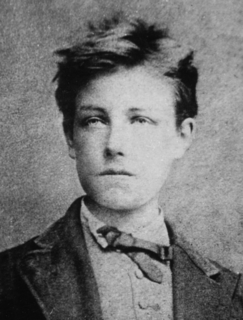A Quote by Ralph Waldo Emerson
Religious literature has eminent examples, and if we run over our private list of poets, critics, philanthropists and philosophers, we shall find them infected with this dropsy and elephantiasis, which we ought to have tapped.
Related Quotes
The Intelligentsia (scientists apart) are losing all touch with, and all influence over, nearly the whole human race. Our most esteemed poets and critics are read by our most esteemed critics and poets (who don't usually like them much) and nobody else takes any notice. An increasing number of highly literate people simply ignore what the 'Highbrows' are doing. It says nothing to them. The Highbrows in return ignore and insult them.
The important thing is this: that, under such government recognition as we may give to that which is beneficent and wholesome in large business organizations, we shall be most vigilant never to allow them to crystallize into a condition which shall make private initiative difficult. It is of the utmost importance that in the future we shall keep the broad path of opportunity just as open and easy for our children as it was for our fathers during the period which has been the glory of America's industrial history.
There shall be poets! When woman's unmeasured bondage shall be broken, when she shall live for and through herself, man--hitherto detestable--having let her go, she, too, will be poet! Woman will find the unknown! Will her ideational worlds be different from ours? She will come upon strange, unfathomable, repellent, delightful things; we shall take them, we shall comprehend them.
The intelligent have a right over the ignorant, namely, the right of instructing them. The right punishment of one out of tune, isto make him play in tune; the fine which the good, refusing to govern, ought to pay, is, to be governed by a worse man; that his guards shall not handle gold and silver, but shall be instructed that there is gold and silver in their souls, which will make men willing to give them every thing which they need.
It does not follow, because our ancestors made so many errors of fact and mixed them with their religion, that we should therefore leave off being religious at all. By being religious we establish ourselves in possession of ultimate reality at the only points at which reality is given us to guard. Our responsible concern is with our private destiny, after all.
...these poets here, you see, they are not of this world:let them live their strange life; let them be cold and hungry, let them run, love and sing: they are as rich as Jacques Coeur, all these silly children, for they have their souls full of rhymes, rhymes which laugh and cry, which make us laugh or cry: Let them live: God blesses all the merciful: and the world blesses the poets.






































